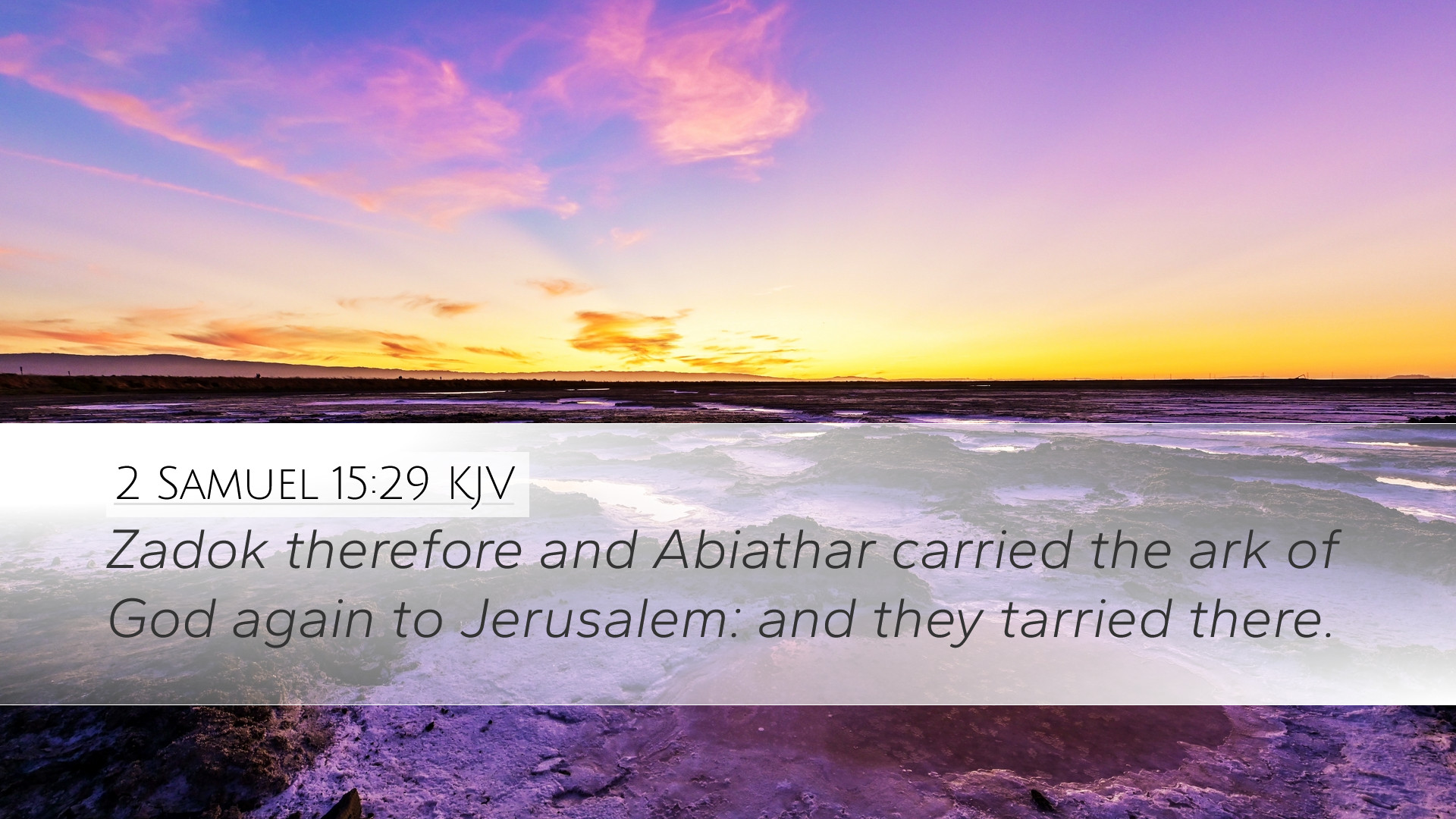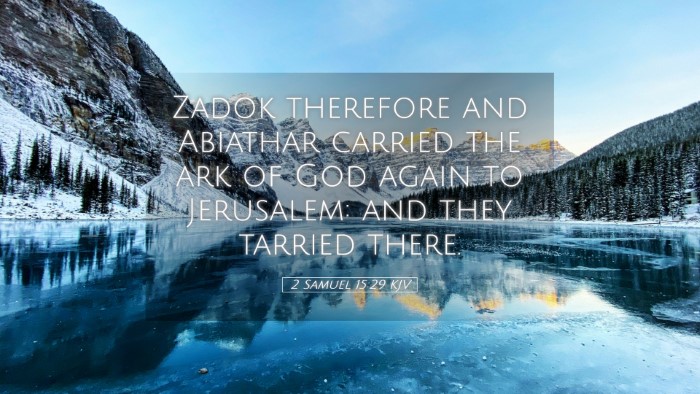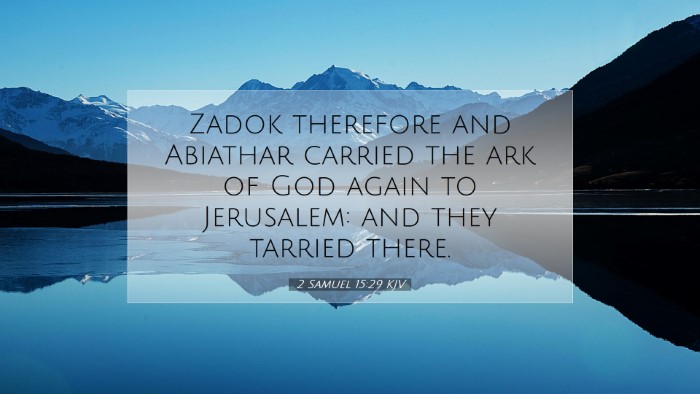Commentary on 2 Samuel 15:29
Verse Text: "And Zadok the priest, and all the Levites that were with him, bare up the ark of God, and they went up to the city of David, and Abiathar went up, until all the people had done passing out of the city."
Introduction
This verse finds itself situated in a critical moment of transition in the life of David and the kingdom of Israel. After Absalom’s rebellion, a poignant narrative unfolds, foregrounding the themes of loyalty, priestly duty, and God’s presence amidst turmoil. In this commentary, we will synthesize insights from various public domain commentators—Matthew Henry, Albert Barnes, and Adam Clarke—to illuminate the theological and practical implications of 2 Samuel 15:29.
The Historical Context
David, once the beloved king of Israel, is faced with the rebellion of his son Absalom. As the events lead to his retreat from Jerusalem, the narrative accentuates the tension between loyalty to the king and the will of the people. The role of the priests Zadok and Abiathar becomes particularly significant as they carry the Ark of God, symbolizing the Divine presence.
Matthew Henry's Insights
Priestly Loyalty and Service
Henry emphasizes the dutiful actions of Zadok and Abiathar. By bearing the Ark of God, they not only uphold their religious responsibilities but also express their loyalty to David amidst Absalom's insurrection. Their actions signify the importance of maintaining the worship of God, even when political circumstances are unstable.
Albert Barnes' Perspective
The Ark of God as Symbol
Barnes notes that the Ark represents the presence of God among His people, a central element of Israel's identity. Carrying the Ark signifies a hope for divine guidance and intervention during tumultuous times. As the priests ascend to the city of David with the Ark, they are not just physically moving an object, but they are also affirming a spiritual commitment to God's leading.
Adam Clarke's Commentary
The People’s Involvement
Clarke discusses the collective action of the people as they leave the city, highlighting the communal aspect of this crisis. The reference to the people passing out of the city illustrates a pivotal shift in power and allegiance, and the priests' decision to follow David exemplifies their roles as both spiritual leaders and political allies. Clarke’s insights inspire deeper reflection on how our faith communities respond in times of national or communal crisis.
Theological Significance
This verse resonates on multiple theological levels:
- The Providence of God: The movement of the priests with the Ark illustrates that God’s presence goes with His people, even in exile.
- The Role of Leaders: Zadok and Abiathar embody the faithfulness and commitment required from spiritual leaders, particularly in challenging circumstances.
- The Unity in Crisis: The emphasis on the communal action of the people highlights the importance of unity and collective faith in facing opposition and uncertainty.
Practical Application
For pastors and leaders today, the actions of Zadok and Abiathar serve as a powerful reminder of the importance of unwavering faithfulness to God during crises. Their symbol of the Ark invites us to consider:
- Faithfulness in Leadership: Leaders are called to represent God's presence and be examples of steadfast commitment.
- Community Engagement: In times of difficulty, how does our community embody faith and support one another?
- God’s Ever-Present Help: Even when it seems God is far away, the Ark’s journey underscores His enduring faithfulness and guidance.
Conclusion
2 Samuel 15:29 captures a moment filled with historical weight and theological depth. Through the lens of public domain commentaries, we can see the intricate interplay of faith, leadership, and communal action. As modern readers and practitioners, we are invited to embrace these lessons, recognizing our role in advancing God's presence in our respective communities—especially during times of trial.


